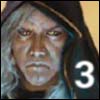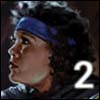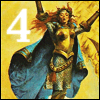I like to call this book the "Book of Alorn". That's because it's completely centered on the Kingdoms of Aloria and it's current purpose in the world (protection of the Orb and the West). We visit three of the four Alorn Kingdoms, discover who Garion really is (as if we didn't already know) and learn that he has to undertake a new, more dangerous quest. The story also splits into two storylines, providing more of an epic feel.
Before You Continue
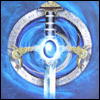
- This blog is part of my The Belgariad / The Malloreon Retrospective
- See this blog post for an overview of the Retrospective
- These blogs are not plot recaps—they are most effective in conjunction with your own re-read of the series
- Warning: CONTAINS SPOILERS FOR THE ENTIRE SERIES
General Thoughts
I like this book the best out of The Belgariad, for a few reasons. One is the recurring themes of home, belonging and finding your purpose, which I'll talk about more later. Many characters suddenly realize their place / purpose in the world, and that's always something that I've gravitated towards in books and film.
The other reason is that the story expands, and it's not just told from Garion's viewpoint anymore, but from both Garion and Ce'Nedra's viewpoint. The last section of the book is entirely Ce'Nedra's, and it's a welcome change of pace and provides a dimension to the story that previous volumes were lacking. While there's nothing wrong with seeing things through Garion's eyes, his "why me?" attitude and innocence about the world does get old after a while. Ce'Nedra, on the other hand, loves to be the center of attention.
In terms of the title - Castle of Wizardry - I feel it's the most poorly-named of all of the books. I guess it's refering to the castle in Riva? Except that Garion is not a wizard. He's a sorcerer. And there's nothing wizardly about the castle. It's never made any sense to me and is one of those generic, throwaway fantasy titles that doesn't really mean anything. (Like Knife of Dreams from The Wheel of Time.) Surely Eddings could have come up with a more apt name, though I know the titles are chess-themed, since it's supposed to be part of this cosmic chess match between the two Prophecies.
What sucks is now when you search for "castle of wizardry" images in Google, after a page or so you mostly get Hogwarts references.
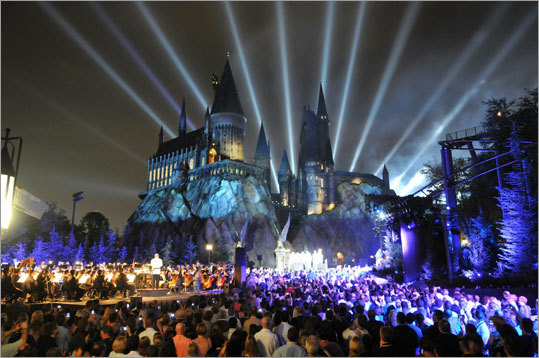
Prologue
As I mention in the blog for Magician's Gambit, Eddings makes good use of each prologue to impart critical history that the reader will need for the coming volume. This time we have an account of the murder of the Rivan King by Nyissa. This is important because obviously, taking Garion and the Orb to Riva is going to reinstate the line of Rivan Kings long thought dead.
The whole hiding of the Rivan King's family is addressed in much greater detail in the Polgara the Sorceress memoir. Polgara is reluctantly forced to keep watch over the Rivan line, moving them around for hundreds of years. Only one male child is born in each generation (prophecy, I guess), and they lived and died in obscurity, each knowing that they were the Rivan King, but unable to do anything about it. That would kind of suck, if you ask me... but at least they knew their purpose in life was to keep the line going, that in the end they would make a difference.
Family
Continuing on that, one of the main focuses of this volume is family. When Garion discovers that Adara, a girl he meets in Algaria, is his cousin, he no longer feels orphaned or so alone in the world. A relative of his own generation is very important to him, compared to one like Polgara or Belgarath - both of whom he is technically related to, though generations upon generations removed.
This theme continues with some of the other characters. Barak and Merel reconcile due to the birth of his first son. They are finally the family that Barak wanted. Relg and Taiba frequently share each other's company, both finding something in a human bond that they never thought they would find.
Finding Your Place
Along with the theme of family, there's the theme of "finding your place." In other words, what is your purpose? Everyone probably asks themselves at some point, "Why am I here? What is my purpose in life?" Knowing that can be very fulfilling for some people.
And even though we knew it, Garion didn't, and when he finally takes the Orb in Riva and is crowned king, he learns what his place in the world is. He finds home - Riva - and a new family in the Rivan people. This was what he was born for.
Of course, learning this comes with the price of having to go fight the god Torak, which Garion decides to undertake in secrecy. But his departure provides Ce'Nedra with a new purpose as the incumbent Rivan Queen. She decides to help gather the forces of the West and be their figurehead, so they can distract the Angaraks while Garion, Belgarath and Silk sneak into Mallorea to meet Torak.
The Cover
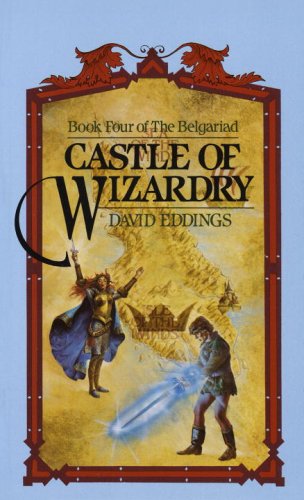
As much as I like this volume, I'm not a fan of the cover. Even though it's the same arist, Laurence Schwinger, Garion looks kind of weird here. What he's doing is also a massive spoiler, but of course you knew who he was from the beginning (and if you didn't, there's no hope for you, sorry).
Ce'Nedra looks fine, and it's nice that Schwinger paid attention to the details once again, like the armor with the breast forms (which makes for a somewhat amusing exchange between Ce'Nedra and an armorer). The map in the background shows Riva, the Isle of the Winds (of course), and the silhouette this time is a crown. Gee, I wonder what that means?
Gibberish Prophecies
Throughout the series they frequently mention how the prophecies they follow are "gibberish" and make no sense, and how Belgarath and the others have looked at them forward, backward and sideways over the millenia, yet still have no clue what some of them mean. Some line of prophecy is quoted in the book and some other character is like, "Phaw, absolute gibberish, that doesn't mean anything."
Really? In The Belgariad - where nothing's really a secret to the reader - none of the prophecy reads as gibberish to me. My reaction is, "seriously, you can't understand what it means?" I always find it amusing. Take this exchange, near the end of Castle of Wizardry, when Polgara is telling Ce'Nedra what the prophecy says about her, after she's been speaking to crowds and gathering armies for the West (chapter 26, pg. 343 of the paperback version):
Polgara ran her eyes down the crackling parchment. "Here is it," she said, lifting the scroll into the candlelight. "'And the voice of the Bride of Light shall be heard in the kingdoms of the world,'" she read, "'and her words shall be as fire in dry grass, that the multitudes shall rise up to go forth under the blaze of her banner.'"
"That doesn't mean anything at all, Lady Polgara," Ce'Nedra objected. "It's absolute gibberish."
I don't know about you, but that's not "absolute gibberish," and it makes the characters sound dumb when they say that - especially when someone like Belgarath says it. Gibberish should have no actual meaning to it, whereas here it's perfectly obvious what it means, even if you haven't even read this book. Whether you know what/who the Bride of Light is is irrelevant to understanding. A true gibberish version of the prophecy above would be something like this:
And the Light Bride hearing far the world voice, fire words over grass, a multitude banner rise forth from blazing kingdoms.
Now that would be gibberish to the reader. Usually gibberish is reserved for bad poetry. Which I suppose prophecy kind of is. But Eddings's prophecies are kind of weak, if you ask me.
Algaria
It's somewhat interesting that a book with themes of family and finding your place take place in countries that are very bleak, empty and desolate. Algaria is the first of the three we visit in Castle of Wizardry.
Algaria is where our heroes escape to after recovering the Orb in Cthol Murgos. It's a huge country, mostly grassland, and the Algars are nomadic. The Vale of Aldur (from the last book, Magician's Gambit) comprises its southern tip. They have only two permanent cities: the Stronghold, a huge stone fortress near the Vale; and Aldurford, up by the Fens (which we visit later).
We don't do much in Algaria. The group reunites with Hettar, our Horse Lord, meet up with King Cho-Hag and travel to the Stronghold. There Garion meets his cousin, Adara, the first "real" family he has found. He also meets King Cho-Hag, keeping the Ruler Streak going - but then, he already met all the Alorn Kings in Pawn of Prophecy. Still, it's good to see them in their own country.
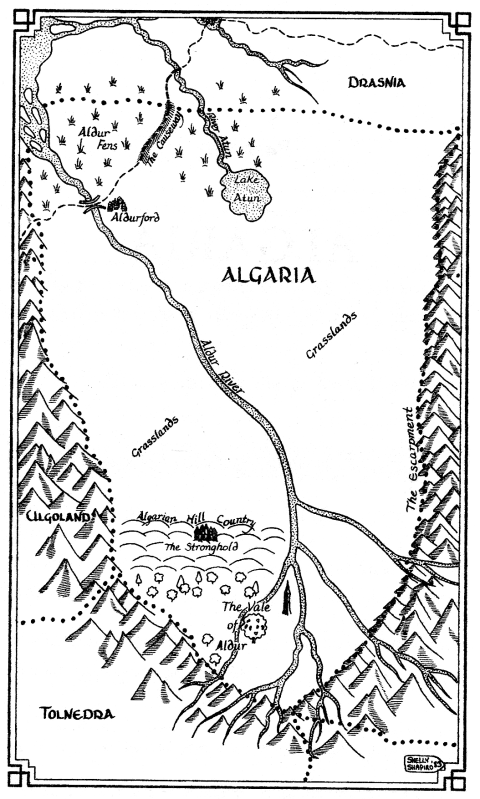
Riva
Riva only came about as a nation because the Alorns needed somewhere to keep the Orb safe. It consists of a single fortress city on the Isle of the Winds, a bleak, forboding place in the western ocean, mostly mountainous with some pasturelands. We don't go any place other than the city in this book, though, so it doesn't really matter.
Garion has suddenly found himself the ruler of this small country, now that he has come into his inheritance. He discusses war with the Alorn and Sendarian kings, learns that he has little privacy anymore and that he is to marry Princess Ce'Nedra - something she is pissed about because he will outrank her. Lots of drama, not a lot of action - until Garion learns what he must do: fight the God Torak.
Since Garion himself is the ruler of this country, the Ruler Streak lives! If you don't think that counts, well... he meets Brand, the Rivan Warder, a position that has ruled in Riva ever since the Nyissans killed the Rivan King and Polgara hid the heir. So there.
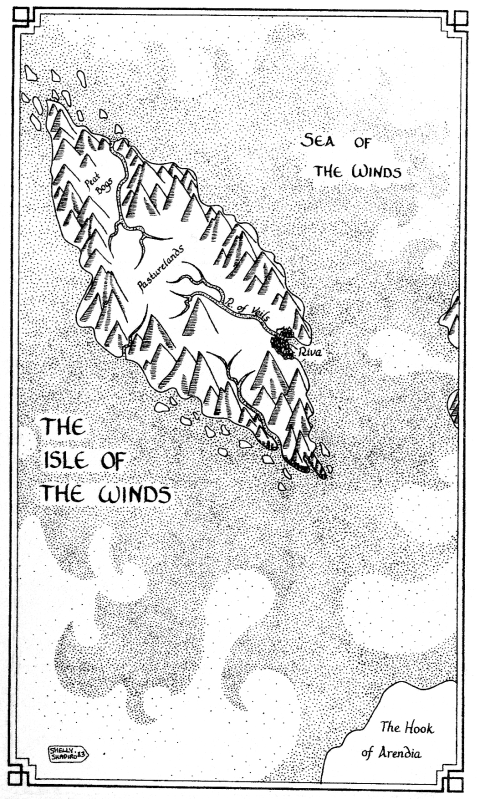
Drasnia
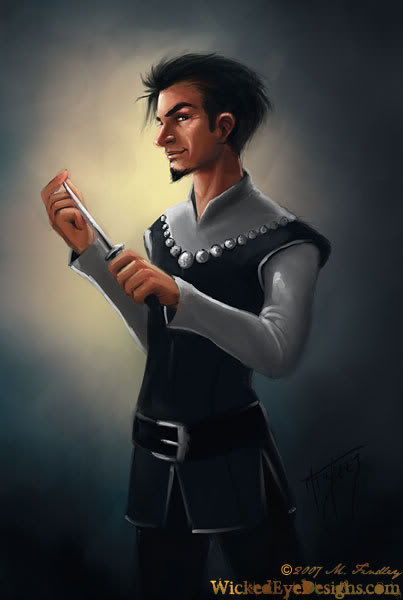
Like Algaria, our stay in Drasnia is rather brief and forgetful. Garion, Belgarath and Silk have snuck away from Riva and are cutting through Drasnia on the way to Mallorea. It's a very short section (60 pages) and there's not really much to see or do here. Now we understand why Silk hates his homeland so much. There are marshes and moors and a whole lot of nothing in Drasnia. The map only shows one city, Boktor. Yawn.
We do spend some time in the marshes / fens in the southwest, where our small party is stuck in a swamp and need "help" to get out. Help = witch woman Vordai who will ensure they stay lost until they give her creature friends (fenlings, I guess they're kind of like squat sea lions or something?) the ability to speak human words. Nevermind that Belgarath and Garion are sorcerers and can just open a path and leave rather than waste time. Garion even mentions this to Belgarath, but he said they had to - prophecy required it of them.
That's about it. They are briefly stopped in the capital, but tell the Queen there to leave them alone (Polgara has been trying to bring them back to Riva after they snuck off) and eventually continue on. I'm keeping the Ruler Streak alive here because Garion has met King Rhodar a couple of times now, and he does see the Queen while in Boktor - who is ruling in his stead. So it counts, I don't care what you say.
You do learn a little more about Silk's past - how he's got a crush on his aunt, the Queen, and about his mother - but it's not that important to Garion's story. He is the trickster / comic relief in this story. His past becomes more important in the next series, The Malloreon, but here it's just nice-to-know info.
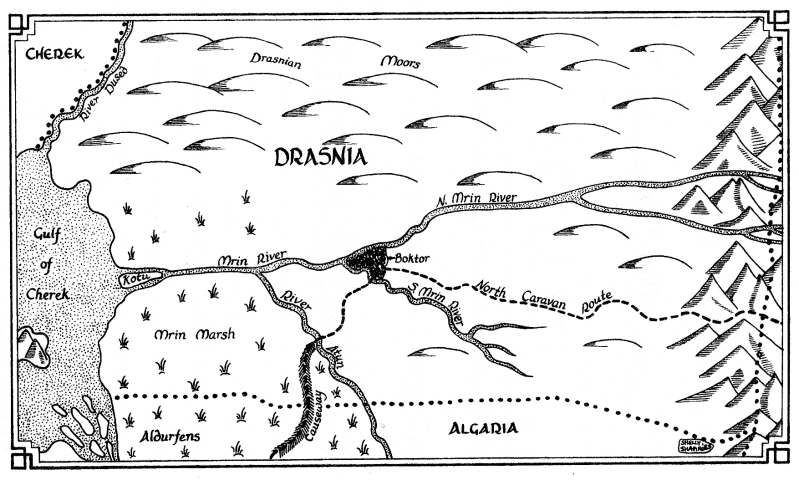
The Rivan Queen
The last section of the book deals with what happens to Ce'Nedra after Garion sneaks off to deal with Torak. There's no special map or need to check the Ruler Streak, since they visit a number of countries here. The West needs to draw the attention of the Angaraks from Garion, so they are mobilizing troops and planning for war. Little Ce'Nedra decides she's going to be the figurehead of this army, wanting to live up to her new title, The Rivan Queen.
This is a welcome change of pace. Ce'Nedra is a lot different than Garion; she's more willful, more manipulative. At first she's not sure she can pull it off - doing the speeches, getting people to follow her - but she manages it quite well, even stealing the Tolnedran Legions from her father, all the while feeling guilty for leading so many to their deaths. For many will die; though it's all supposed to be a diversion, war is inevitable. Blood will flow.
The Belgariad / The Mallorean
Next
2012-10-26 The Belgariad [5] Enchanter's End Game (1984)
Previous
2012-09-11 The Belgariad [3] Magician's Gambit (1983)
2012-08-18 The Belgariad [2] Queen of Sorcery (1982)
2012-07-09 The Belgariad [1] Pawn of Prophecy (1982)
2012-06-20 The Belgariad / The Malloreon - The Retrospective
